Politics
From gold-plated dreams to $200m ballroom, Trump builds his presidential stamp
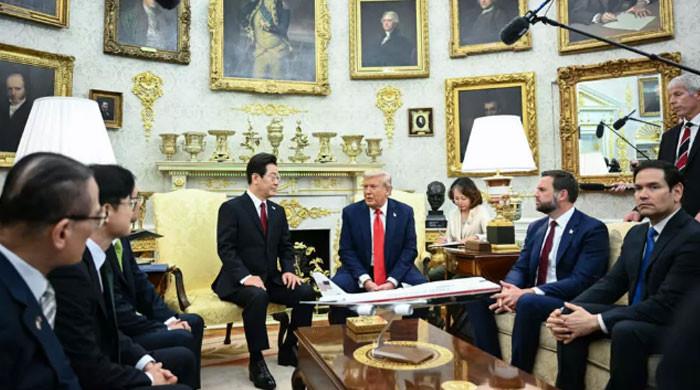
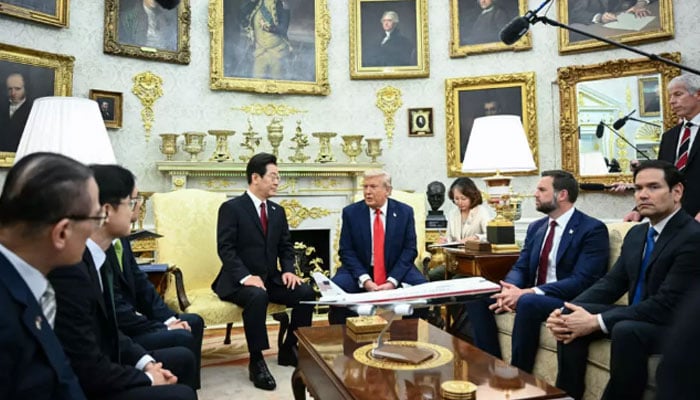
WASHINGTON: From a gold-plated White House to a grandiose revamp for the capital, Washington, Donald Trump is trying to leave an architectural mark like no American president has attempted for decades.
“I’m good at building things,” the former property magnate said earlier this month as he announced perhaps the biggest project of all, a huge new $200-million ballroom at the US executive mansion.
Trump made his fortune developing glitzy hotels and casinos branded with his name. Critics say the makeover Trump has given the White House in his second presidency is of a similar style.
Parts of it now resemble his brash Mar-a-Lago resort in Florida, particularly the newly paved-over Rose Garden with its picnic tables and yellow and white umbrellas.
During Trump’s first term, the British style writer Peter York dubbed his style ‘dictator chic,’ comparing it to that of foreign autocrats.
But Trump has also recently unveiled a grand vision for the entire US capital.
And he has explicitly tied his desire to ‘beautify’ Washington to his recent crackdown on crime, which has seen him deploy troops in the Democratic-run city, where just two months ago he held a military parade on his birthday.
“This is a ratcheting up of the performance of power,” Peter Loge, director of George Washington University’s School of Media, told AFP.
“That’s what he does. Puts his name on bibles and casinos, so the logic makes complete sense. Except now he’s playing with lives, the reputation of the United States and a democratic legacy.”
Oval bling
Trump is far from the first president to carry out major renovations at the White House in its 225-year history.
Franklin Roosevelt oversaw the construction of the current Oval Office in 1934, Harry Truman led a major overhaul that ended in 1951, and John F Kennedy created the modern Rose Garden in 1961.
The White House Historical Association put Trump’s changes in context, saying the building was a “living symbol of American democracy, evolving while enduring as a national landmark.”
Its president, Stewart McLaurin, said in an essay in June that renovations throughout history had drawn criticism from the media and Congress over “costs, historical integrity and timing.”
“Yet many of these alterations have become integral to the identity of the White House, and it is difficult for us to imagine the White House today without these evolutions and additions,” he wrote.
Trump’s changes are nevertheless the furthest-reaching for nearly a century.
Soon after his return, he began blinging up the Oval Office walls with gold trim and trinkets that visiting foreign leaders have been careful to praise.
Then he ordered the famed grass of the Rose Garden to be turned into a patio. Trump said he did so because women’s high-heeled shoes were sinking into the turf.
After it was finished, Trump installed a sound system, and AFP reporters could regularly hear music from his personal playlist blaring from the patio.
Trump has also installed two huge US flags on the White House lawns, and a giant mirror on the West Wing colonnade in which the former reality TV star can see himself as he leaves the Oval.
‘Big beautiful face’
Billionaire Trump says he is personally funding those improvements. But his bigger plans will need outside help.
The White House said the new ballroom planned for the East Wing by the end of his term in January 2029 will be funded by Trump and other patriot donors.”
Trump, meanwhile, says he expects Congress to agree to foot the $2 billion bill for his grand plan to spruce up Washington.
On a trip to oil-rich Saudi Arabia in May, Trump admired the “gleaming marvels” of the skyline — and he appears intent on creating his own gleaming capital.
That ranges from a marble-plated makeover at the Kennedy Centre for the Performing Arts to getting rid of graffiti and — ever the construction boss — fixing broken road barriers and laying new asphalt.
But Trump’s Washington plans also involve a crackdown by the National Guard that he has threatened to extend to other cities like Chicago.
He has repeatedly said of the troop presence that Americans would “maybe like a dictator” — even as he rejects his opponents’ claims that he’s acting like one.
Trump’s own face even looms above Washington streets from huge posters on the Labour and Agriculture departments.
“Mr President, I invite you to see your big beautiful face on a banner in front of the Department of Labour,” Secretary of Labour Lori Chavez-DeRemer said Tuesday at a cabinet meeting.
Politics
Israel Strikes Hezbollah Ally’s Office in Sidon


Israel carried out an airstrike on a headquarters belonging to Al-Jamaa Al-Islamiya, an ally of Hezbollah and Hamas, in the southern Lebanese city of Sidon, according to Lebanese state media.
Reports said the strike targeted the group’s office in the coastal city on Tuesday.
Rescue teams and emergency responders rushed to the site following the air raid.
Escalating Regional Tensions
The attack comes amid heightened tensions across the Middle East following expanding military confrontations in the region.
Israel has previously accused Hezbollah and allied groups of coordinating activities with Hamas.
Sidon, one of Lebanon’s major coastal cities, had largely avoided heavy bombardment during the last Israel-Hezbollah conflict.
Background
A November 2024 ceasefire had sought to end the previous war between Israel and Hezbollah.
However, the latest strike indicates renewed tensions and the possibility of further escalation in southern Lebanon.
Authorities have not yet released detailed casualty figures from the attack.
Politics
Trump, Rubio offer conflicting reasons for US entry into Iran war
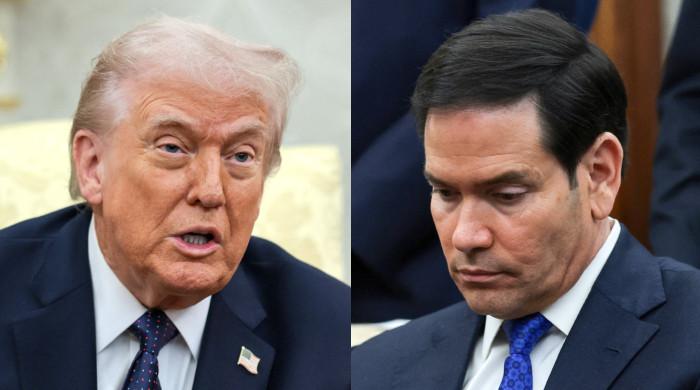
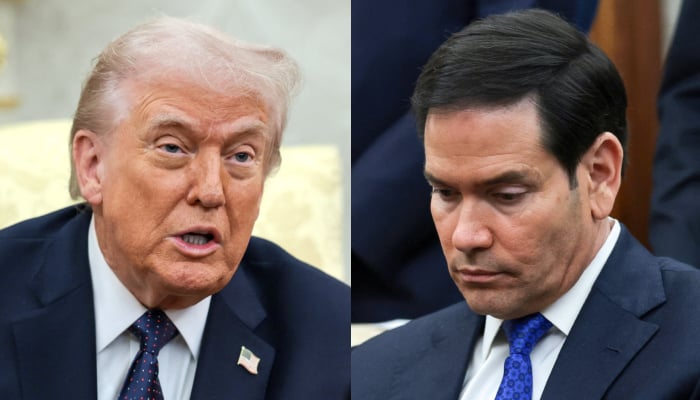
- Trump claims Iran was about to strike first, contradicting Rubio.
- Conservatives criticise US involvement in Iran war.
- White House in damage control over conflicting war rationales.
WASHINGTON: President Donald Trump said on Tuesday he ordered US forces to join Israel’s attack on Iran because he believed Iran was about to strike first, contradicting the rationale offered a day earlier by his secretary of state for how the war began.
Secretary of State Marco Rubio told reporters on Monday that the US launched the attack because of fears that Iran would retaliate in response to planned Israeli action against Tehran.
“We knew that there was going to be an Israeli action; we knew that that would precipitate an attack against American forces, and we knew that if we didn’t preemptively go after them before they launched those attacks, we would suffer higher casualties,” Rubio said.
Trump rejected suggestions that Israel pushed the US into the conflict, as his administration gave varying accounts and faced criticism from some supporters and Democrats who accused him of launching a “war of choice.”
“I might have forced their (Israel’s) hand,” Trump told reporters in the Oval Office as he met with German Chancellor Friedrich Merz. “We were having negotiations with these lunatics, and it was my opinion that they were going to attack first. If we didn’t do it, they were going to attack first. I felt strongly about that.”
Iran has said the US assault was unprovoked.
Several prominent conservative commentators ratcheted up their criticism of the Iran attacks, arguing Rubio’s comments indicated that Israel, not the Trump administration, was calling the shots.
“So he’s flat out telling us that we’re in a war with Iran because Israel forced our hand,” conservative podcaster Matt Walsh wrote of Rubio to his 4 million followers on X. “This is basically the worst possible thing he could have said.”
Megyn Kelly, a conservative podcaster, told her audience that she had doubts about Trump’s decision to strike Iran.
“Our government’s job is not to look out for Iran or for Israel. It’s to look out for us. And this feels very much to me like it is clearly Israel’s war,” Kelly said in remarks aired prior to Rubio’s comments.
The criticism from Trump’s right flank comes as his Republican Party is fighting to hold on to control of the US Congress in the November midterm elections.
Damage control
The debate over the run-up to the war has forced the White House into damage control.
Trump on Tuesday took questions from reporters in a public setting for the first time since the US-Israeli air war began three days earlier. He previously discussed the attacks in two videos, one-on-one interviews with select journalists and brief remarks on Monday at the White House.
The president said he believed Iran was on the brink of launching attacks, presenting no evidence to support his view, after US negotiations with Iran last Thursday in Geneva. Iran had described those talks as positive, with more planned in the days ahead.
“It’s something that had to be done,” said Trump, who did not make a detailed case for war against Iran before it began.
Rubio, pressed on Tuesday about his prior comment during a visit to Capitol Hill, told reporters: “The bottom line is this: The president determined we were not going to get hit first. It’s that simple, guys.”
Two senior Trump administration officials held a conference call on Tuesday with reporters to describe events leading up to military operations, in particular the Geneva talks with Iranian officials held by US envoys Steve Witkoff and Jared Kushner and mediated by Oman.
The two officials said Witkoff and Kushner repeatedly pressed Iran to give up uranium enrichment. Instead, Iran presented a plan that would allow the Iranians to enrich uranium at higher percentages at the Tehran Research Reactor in northern Iran, they said.
The US envoys felt the Iranians were engaging in delay tactics, according to the officials.
“They were unwilling to give up the building blocks of what they needed to preserve in order to get to a (nuclear) bomb,” one official said.
Iran denies seeking a nuclear weapon.
The envoys reported back to Trump, telling him it might have been possible to get a nuclear agreement similar to the one that former President Barack Obama’s team and world powers negotiated with Iran in 2015 but that it would take months.
Trump ordered US forces into action the next day, and the strikes began on Saturday.
Politics
Britain to bar study visas for four nations, halt Afghan work visas
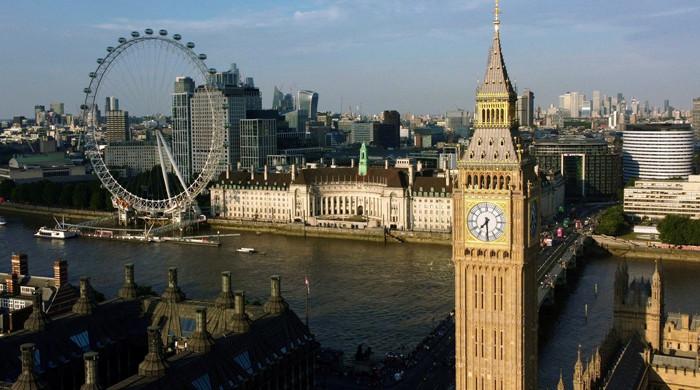
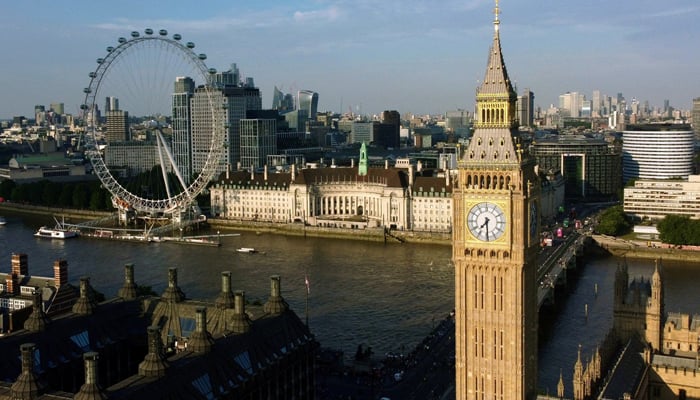
- Study visas blocked for Afghanistan, Cameroon, Myanmar, Sudan.
- Britain will also halt work visas for Afghans.
- UK says legal asylum claims rose 470% between 2021 and 2025.
Britain said on Tuesday it would block study visas for nationals from four countries and halt work visas for Afghans, using what it called an “emergency brake” to curb rising asylum claims from people entering through legal routes.
Immigration remains one of Britain’s most politically sensitive issues, and Prime Minister Keir Starmer’s government has sought to show it is tightening the system as the populist Reform UK party gains ground in opinion polls.
The interior ministry, which is set to block study visas for nationals from Afghanistan, Cameroon, Myanmar and Sudan, said asylum applications by students from these countries had jumped more than fivefold between 2021 and 2025.
It also said claims by Afghans on work visas were now outstripping the number of visas issued.
“Britain will always provide refuge to people fleeing war and persecution, but our visa system must not be abused,” interior minister Shabana Mahmood said in a statement.
“That is why I am taking the unprecedented decision to refuse visas for those nationals seeking to exploit our generosity.”
Asylum claims trebling since 2021
According to the government, asylum claims made after entering on legal visas have more than trebled since 2021 and accounted for 39% of the 100,000 people who applied last year.
It said that nearly 16,000 nationals from the four listed countries were currently being supported at public expense, including more than 6,000 in hotels, adding to pressure over the cost of asylum accommodation, which it put at 4 billion pounds ($5.34 billion) a year.
The changes would take effect on March 26, the government said, adding that it intended to create new capped “safe and legal routes” once the asylum system stabilises.
Britain has granted sanctuary to more than 37,000 Afghans through resettlement schemes since 2021 and issued about 190,000 humanitarian visas last year.
It said it had secured cooperation from Angola, Namibia and the Democratic Republic of Congo on returns, after warning in November that their nationals risked losing access to UK visas.
Starmer has previously said that Britain’s asylum rules were more permissive compared with parts of Europe and acted as a “pull factor” for people seeking to reach the country.
His government announced plans in November to make refugee status temporary and speed up removals of people who arrive illegally.
-

 Business5 days ago
Business5 days agoIndia Us Trade Deal: Fresh look at India-US trade deal? May be ‘rebalanced’ if circumstances change, says Piyush Goyal – The Times of India
-

 Business1 week ago
Business1 week agoHouseholds set for lower energy bills amid price cap shake-up
-

 Politics6 days ago
Politics6 days agoWhat are Iran’s ballistic missile capabilities?
-

 Politics6 days ago
Politics6 days agoUS arrests ex-Air Force pilot for ‘training’ Chinese military
-

 Fashion6 days ago
Fashion6 days agoPolicy easing drives Argentina’s garment import surge in 2025
-

 Sports1 week ago
Sports1 week agoTop 50 USMNT players of 2026, ranked by club form: USMNT Player Performance Index returns
-
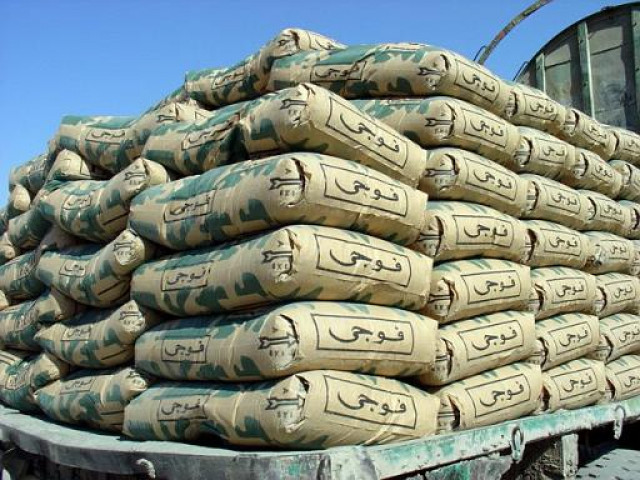
 Business6 days ago
Business6 days agoAttock Cement’s acquisition approved | The Express Tribune
-

 Business1 week ago
Business1 week agoLucid widely misses earnings expectations, forecasts continued EV growth in 2026






